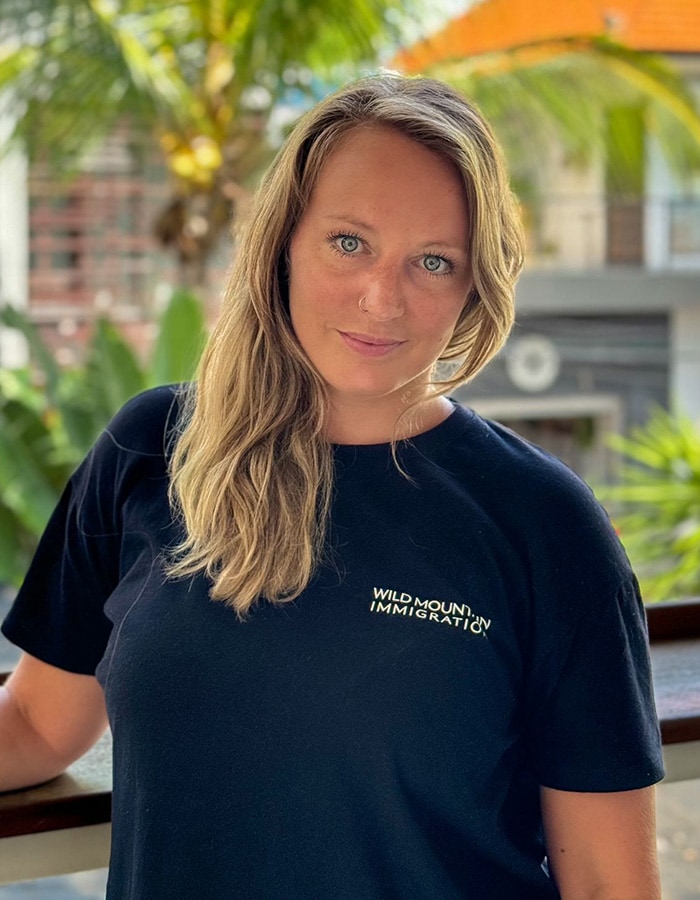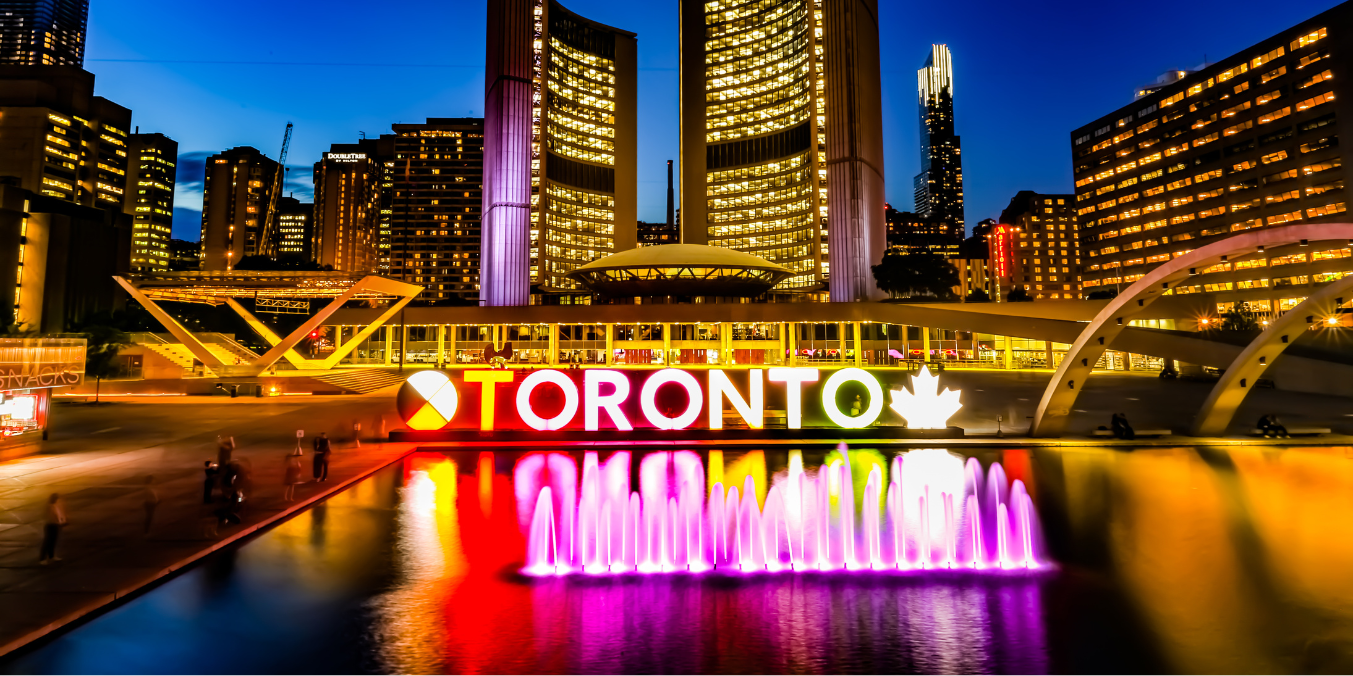If you’re wondering how much bank balance is required for Canada, you’re not alone. Understanding the financial requirements for different Canadian visas is essential for a successful application, whether you’re applying for a visitor visa, a study permit, or the Express Entry program.
Showing proof of funds assures Canadian immigration authorities that you have sufficient financial means to cover your expenses during your stay, reducing the risk of overstaying or becoming a financial burden on the country. In this guide, we’ll detail the minimum bank balance required for Canada in 2024 and share tips for meeting these financial requirements across various visa categories.

Canadian Immigration Consultant
Let our expert team of Canadian immigration consultants guide you through the complexities of Canada’s immigration process. We provide personalized, step-by-step support to ensure a smooth and successful journey to your new life in Canada.
Why is Financial Proof Important for Canadian Immigration?
Understanding how much bank balance is required for Canada is not just about meeting a number—it’s about demonstrating that you are financially prepared for life in the country. Showing proof of funds is a key requirement for various visa types, including visitor visas, study permits, and immigration programs like Express Entry. Here’s why financial proof is essential for Canadian immigration:
- Demonstrates Financial Stability: When you show that you have enough funds to support yourself, it indicates to Canadian immigration authorities that you can cover living expenses like accommodation, food, and transportation. This financial stability reassures officials that you won’t become a financial burden on public resources.
- Supports Visa Approval: Having the necessary bank balance can significantly increase your chances of visa approval. Proof of funds is a standard requirement in the application process and failing to meet the financial criteria can lead to delays or even rejection.
- Reduces the Risk of Overstaying: When you demonstrate that you have the financial means to return home, it reduces the incentive for overstaying your visa. Sufficient funds indicate that you can afford to leave Canada and re-establish yourself in your home country after your stay.
- Shows Preparedness for Unforeseen Expenses: Life can be unpredictable, and having adequate financial resources ensures you’re prepared for unexpected expenses during your stay, such as medical emergencies or sudden changes in accommodation.
- Proves Strong Ties to Your Home Country: Financial proof, along with other documents like employment letters or property ownership, helps show your intention to return home after your visit, which is a critical factor in visa assessments.
What is Proof of Funds for Canadian Visas?
Proof of funds is a mandatory requirement for many Canadian visa types, including visitor visas, study permits, and immigration programs like Express Entry. It serves as evidence that you have the financial means to support yourself and any accompanying family members during your stay in Canada. Knowing how much bank balance is required for Canada is crucial to ensuring your application meets the financial criteria and avoids delays or rejections.
The proof of funds requirement is designed to ensure that applicants won’t face financial difficulties while in Canada. This requirement varies depending on the type of visa or immigration program. For example, Express Entry applicants need to meet specific minimum settlement funds based on family size, while students need to show funds covering tuition and living expenses for their study duration.
The funds must be accessible and available to the applicant when:
- Applying for the visa: The financial documents submitted should clearly show that you have sufficient funds in your account.
- Arriving in Canada: The funds should still be available upon arrival, and border officials may ask for evidence to confirm this.
Types of acceptable proof of funds include bank statements, investment portfolios, official bank letters, and other financial documents showing available funds. These documents should reflect a stable account history over several months, with no large unexplained deposits or withdrawals.

How Much Bank Balance is Required for Different Visa Categories?
The amount of bank balance required for Canada varies depending on the type of visa or immigration program you’re applying for. Below is a breakdown of the financial requirements for the most common visa categories:
1. Express Entry Program (Federal Skilled Worker and Skilled Trades)
For Express Entry, applicants under the Federal Skilled Worker and Federal Skilled Trades programs need to meet specific proof of funds requirements based on the size of their family. The minimum required funds are updated annually to reflect 50% of the low-income cut-off totals. As of June 2024, here are the minimum amounts:
| Number of Family Members | Minimum Funds Required (CAD) |
|---|---|
| 1 | $14,690 |
| 2 | $18,288 |
| 3 | $22,483 |
| 4 | $27,297 |
| 5 | $30,690 |
| 6 | $34,917 |
| 7 or more | $38,875 |
| Additional family member | + $3,958 per member |
Applicants must include themselves, their spouse, and any dependent children, even if family members aren’t coming to Canada. It’s important to keep the proof of funds updated throughout the application process.
2. Student Visa (Study Permit)
For a Canadian study permit, applicants must demonstrate enough funds to cover tuition fees, living expenses, and return transportation. The minimum bank balance should include:
- Tuition fees for the first year: Varies by institution and program.
- Living expenses: A minimum of CAD 10,000 per year for the student, plus CAD 4,000 for the first dependent and CAD 3,000 for each additional dependent.
- Return travel: Estimated travel costs back to the home country.
Applicants should ensure that funds are readily available to cover the full amount for at least the first year of study.
3. Visitor Visa
When applying for a visitor visa, the recommended bank balance required for Canada is around CAD 10,000 for a single person. However, the exact amount can vary depending on factors like the length of stay, the number of people traveling, and planned activities. Applicants should show they have enough funds to cover accommodation, travel expenses, and living costs for the entire duration of their visit.
Additional Considerations:
- Exemptions: Some applicants are exempt from showing proof of funds, such as Canadian Experience Class applicants or those with a valid job offer.
- Currency fluctuations: Be mindful of exchange rates if you’re using foreign currency to meet the requirements. The funds should be calculated in Canadian dollars.
Documents Needed to Prove Financial Stability for Each Visa Type
To satisfy the financial requirements for various Canadian visas, applicants need to provide specific documents as proof of funds. Understanding the appropriate documents can help ensure your application meets the criteria for how much bank balance is required for Canada. Here’s a breakdown of the required financial documents for each visa type:
1. Express Entry Program (Federal Skilled Worker and Skilled Trades)
Applicants under the Express Entry program must submit the following financial documents to prove their settlement funds:
- Official bank letters: These letters should be printed on the financial institution’s letterhead and include the institution’s contact information, your name, account numbers, outstanding debts (such as loans or credit card balances), account balances, and the average balance over the last six months.
- Investment statements or fixed deposits: If you’re using investment accounts or fixed deposits as proof of funds, ensure these documents clearly show the current value and ownership.
The documents should confirm that the funds are liquid and accessible, as you cannot use real estate equity or borrowed money to meet the proof of funds requirement.
2. Student Visa (Study Permit)
For a Canadian study permit, applicants should provide financial documents that cover tuition, living expenses, and return travel costs:
- Bank statements for the past six months: These should show a consistent account balance sufficient to cover the first year’s tuition and living expenses.
- Proof of payment or funding: If you’ve already paid tuition fees or received funding through scholarships, include official receipts or award letters.
- Sponsorship letters (if applicable): If a parent, relative, or third party is sponsoring your education, a sponsorship letter detailing the amount and duration of financial support is necessary.
3. Visitor Visa
To demonstrate financial stability for a visitor visa, applicants should submit:
- Recent bank statements: Show sufficient funds to cover accommodation, travel expenses, and living costs for the trip’s duration.
- Income proof: Documents like pay stubs, employment letters, or tax returns can help verify a stable source of income.
- Sponsorship letters (if visiting family): If someone in Canada is covering your expenses, include a letter from your sponsor, along with their financial documents.
4. Common Document Requirements Across All Visa Types
Regardless of the visa type, some general documentation standards apply:
- Documents must be translated into English or French: If your documents are in another language, ensure they are translated by a certified translator.
- Consistent financial history: Large, unexplained deposits or withdrawals can raise red flags, so aim for a stable account history over several months.
- Joint accounts or spouse’s accounts: If using funds from a joint account or your spouse’s account, you must provide evidence of access to the money.
Special Considerations for Express Entry Applicants
For those applying under the Express Entry system, understanding how much bank balance is required for Canada and staying up-to-date with financial requirements is crucial for meeting the program’s eligibility criteria. While proof of funds is mandatory for the Federal Skilled Worker and Federal Skilled Trades programs, there are some important considerations and exemptions to keep in mind:
1. Exemptions from Proof of Funds Requirements
Not all Express Entry applicants need to show proof of funds. You are exempt if:
- You’re applying under the Canadian Experience Class (CEC): CEC applicants are not required to provide proof of funds, as they have already gained Canadian work experience.
- You have a valid job offer in Canada: Even if you’re applying through the Federal Skilled Worker or Skilled Trades programs, a valid job offer can exempt you from the proof of funds requirement.
If you qualify for an exemption, you must still upload a letter in your Express Entry profile explaining why proof of funds is not required, such as stating your valid job offer or Canadian work experience.
2. Keeping Proof of Funds Updated
Applicants must ensure that their proof of funds information is current and accurate in their Express Entry profile. The minimum settlement funds requirements are updated annually, and applicants need to reflect any changes in their profile to maintain eligibility. For 2024, the required amounts are based on 50% of the low-income cut-off totals and vary depending on the size of the family.
3. Liquid and Accessible Funds Only
When proving how much bank balance is required for Canada, Express Entry applicants must show that their funds are both liquid and accessible. This means:
- The funds must be readily available: You cannot use assets like real estate equity, borrowed money, or locked investments as proof of funds.
- Funds must be under your control: If you’re including money from a joint account or an account under your spouse’s name, you need to provide documentation proving access to the funds.
- Funds should be available at all stages: The money must be available when you apply and continue to be accessible upon receiving your permanent resident visa.
4. How to Increase Your Chances of Approval
To strengthen your application, consider these tips:
- List more funds than the minimum requirement: If you have more funds than the minimum, include the full amount in your profile to show financial preparedness.
- Avoid large unexplained deposits: Make sure the financial history presented in your documents shows a steady account balance over the past six months.

Common Mistakes When Providing Proof of Funds
When proving how much bank balance is required for Canada, it’s important to ensure your financial documentation is accurate and meets all criteria. Many visa applications are delayed or rejected due to mistakes in the proof of funds process. Here are some common pitfalls to avoid:
1. Submitting Incomplete or Inaccurate Financial Documents
Providing incomplete financial documents, such as missing pages of bank statements or incomplete account details, can lead to application delays. Make sure all documents:
- Include all necessary information: This should cover account numbers, your name, the financial institution’s contact details, and transaction history for at least the past six months.
- Are translated if needed: If your documents are in a language other than English or French, have them translated by a certified translator.
2. Including Inaccessible Funds
Proof of funds must consist of liquid assets that are readily available for use. Common mistakes include:
- Listing funds that are tied up in investments: Locked-in investments, real estate equity, or borrowed money cannot be used as proof of funds.
- Using business accounts without clear evidence of access: If you’re using a business account, you must provide documentation proving you have legal access to the funds for personal use.
3. Unexplained Large Deposits
Immigration officials may question large, unexplained deposits in your account. To avoid issues:
- Provide an explanation for any significant deposits: If there are large sums of money added to your account recently, include supporting documents, such as a gift deed, sale of property, or salary bonus.
- Ensure consistency in account history: A steady account balance over the past six months is preferred, as it shows financial stability.
4. Failing to Update Settlement Funds in Express Entry Profiles
If you’re applying through Express Entry, it’s crucial to keep the proof of funds information in your profile up to date. The required settlement funds change annually, so failing to adjust your profile can lead to ineligibility.
5. Misrepresentation or Providing False Information
Any attempt to misrepresent your financial situation can lead to immediate rejection of your visa application and possible future bans from entering Canada. Always provide accurate, truthful, and verifiable information.
Alternatives to Traditional Proof of Funds
In some cases, meeting the bank balance requirements for Canada through traditional means may be challenging. Fortunately, there are alternative ways to satisfy the financial requirements for various visa types. Here are some options to consider:
1. Sponsorship by a Family Member or Relative
If you’re visiting family or being sponsored for a study permit, a relative can help demonstrate financial support by providing a sponsorship letter and their financial documents. This typically includes:
- A sponsorship letter detailing the amount and duration of financial support.
- Supporting financial documents from the sponsor, such as recent bank statements, proof of income, and employment letters. This option is particularly useful for students whose parents or relatives are covering tuition fees and living expenses.
2. Scholarships or Financial Awards for Students
For study permit applicants, receiving a scholarship or financial award from a recognized institution can serve as part of the proof of funds. Be sure to include:
- Official scholarship or award letters indicating the amount, duration, and what expenses the funds will cover.
- Receipts for tuition payments already made using the scholarship.
3. Guaranteed Investment Certificate (GIC) for Students
International students applying under the Student Direct Stream (SDS) can use a GIC as proof of funds. A GIC is a Canadian investment that provides guaranteed interest over a fixed period and is accepted as an alternative form of financial proof. It typically covers CAD 10,000, which is considered sufficient for the first year of living expenses.
4. Joint Bank Accounts or Spouse’s Funds
If you’re married or in a common-law relationship, you may use a joint bank account or funds in your spouse’s account, provided you can demonstrate access to the money. Make sure to include:
- Evidence of the relationship, such as a marriage certificate.
- Proof of access to the account, including joint account statements or a letter from the bank.
5. Financial Support from a Canadian Employer
Applicants with a job offer may be able to use the employer’s financial support to fulfill part of the proof of funds requirements, particularly under the Temporary Foreign Worker Program or if exempt from proof of funds in Express Entry.
Things to Remember When Using Alternatives:
- Provide all necessary documentation: When using alternatives, ensure all related documents are accurate, official, and up-to-date.
- Check eligibility criteria: Some options may only apply to specific visa categories, such as GICs for students or sponsorship for visitor visas.

How Much Money Should You Bring to Canada?
While meeting the minimum bank balance required for Canada is essential for visa approval, it’s advisable to bring more than the minimum amount. This extra financial cushion can help you adjust to the cost of living, secure housing, and cover any unforeseen expenses as you settle in Canada. Here are some important factors to consider when determining how much money to bring:
1. Research the Cost of Living in Your Destination
The cost of living varies significantly across Canada, depending on the city or province. For instance:
- Cities like Toronto and Vancouver tend to have higher living expenses, particularly for housing.
- Smaller cities or rural areas may offer lower costs, but essential services like transportation may be more limited.
2. Bringing More Than the Minimum Required Funds
Although the minimum required funds for settlement are set based on family size (e.g., CAD 14,690 for a single applicant), bringing additional funds can make your transition smoother by covering costs such as:
- Security deposits for rental housing.
- Furnishings, appliances, and initial groceries.
- Healthcare costs not covered by public insurance during the initial waiting period.
- Emergency expenses or unexpected delays in finding employment.
3. Disclosing Funds at the Border
When arriving in Canada, you must declare if you’re bringing more than CAD 10,000. This includes cash, traveler’s cheques, money orders, or any financial instruments. Failing to declare amounts over CAD 10,000 can lead to fines and the seizure of funds. Make sure you:
- Provide accurate information about the amount you’re carrying.
- Understand what qualifies as “funds,” including cash, stocks, bonds, and bank drafts.
4. Planning for Initial Settlement Costs
In addition to meeting the visa requirements for how much bank balance is required for Canada, you should budget for other initial expenses, such as:
- Temporary accommodation costs while looking for permanent housing.
- Transportation fees, especially if you need to rent a car or use public transit extensively.
- Setting up utilities like internet, electricity, and water.
5. Accessing Your Funds in Canada
To ensure smooth access to your money after arriving, consider the following:
- Open a Canadian bank account as soon as possible to transfer funds and avoid international transaction fees.
- Carry multiple payment options, including debit cards, credit cards, and some cash, to cover various expenses.
Conclusion
Understanding how much bank balance is required for Canada is a critical step in ensuring a smooth and successful visa application. Whether you’re applying for a visitor visa, study permit, or through the Express Entry program, meeting the financial requirements demonstrates your ability to support yourself and any dependents during your stay. Each visa category has specific proof of funds requirements, and it is essential to provide accurate and complete financial documentation to avoid delays or rejections.
By researching the cost of living in your chosen destination, planning for initial settlement costs, and avoiding common mistakes, you can strengthen your application and improve your chances of approval. If traditional proof of funds is challenging, explore alternative options like sponsorships or financial awards, while always ensuring your documents are clear and verifiable.
Preparing adequately for Canada’s financial requirements not only helps with the visa process but also ensures a smoother transition as you start your new life in the country. For personalized assistance with meeting proof of funds requirements, reach out to Wild Mountain Immigration to make your Canadian immigration journey easier.
How We Can Help
At Wild Mountain Immigration, our experienced team of certified Canadian immigration consultants is here to help you navigate the complexities of the immigration system. Whether you’re applying for permanent residency, a work permit, or dealing with a complex immigration case, we provide personalized support tailored to your needs.
Contact us today to learn how we can help you achieve your Canadian immigration goals.
FAQs
The minimum bank balance required for Canada varies depending on the type of visa or immigration program you are applying for. For the Express Entry program, the required funds are updated annually and are based on the size of your family. As of 2024, a single applicant needs at least CAD 14,690, while a family of four would require CAD 27,297. For other visa categories, like a student visa, the minimum amount typically covers the first year’s tuition fees and living expenses, while visitor visas generally require around CAD 10,000.
The amount you need to show in your bank account depends on the specific visa category. For Express Entry, the settlement funds are based on family size, with a minimum of CAD 14,690 for one person. For a student visa, you should demonstrate sufficient funds to cover tuition and living expenses, totaling at least CAD 10,000 for one year, in addition to tuition fees. For a visitor visa, showing at least CAD 10,000 is generally recommended, although the amount may vary based on the length of stay and travel plans.
The bank balance required for a Canadian visa depends on the visa category:
- Express Entry: Settlement funds based on family size (e.g., CAD 14,690 for one person).
- Student visa: Funds to cover one year’s tuition fees and CAD 10,000 for living expenses.
- Visitor visa: Recommended minimum of CAD 10,000, with the actual amount varying based on the length of stay and personal circumstances.
Make sure to provide recent bank statements and other financial documents as proof of funds to meet these requirements.
Canadian Immigration FAQs
Find quick answers to the most common questions about Canadian immigration, visas, and permanent residency.
LMIA Costs Explained: How Much Does LMIA Cost in 2024?
For Canadian employers seeking to hire foreign workers, a Labour Market…
Can I Leave Canada After Applying for Spousal Sponsorship?
When applying for spousal sponsorship in Canada, many applicants wonder,…
Who Can Apply for BOWP (Bridging Open Work Permit) in Canada?
If you’re transitioning from temporary status to permanent residence in…
Start Your Canadian Immigration Journey
Our experts make the process clear, stress-free, and successful, so you can move forward with confidence and focus on what matters most.

Contact Us
Immigration questions and service enquiries
Consultation
Speak to an expert
immigration consultant
"*" indicates required fields



